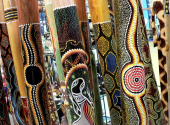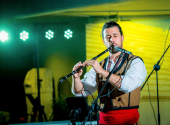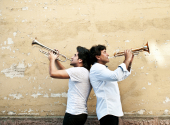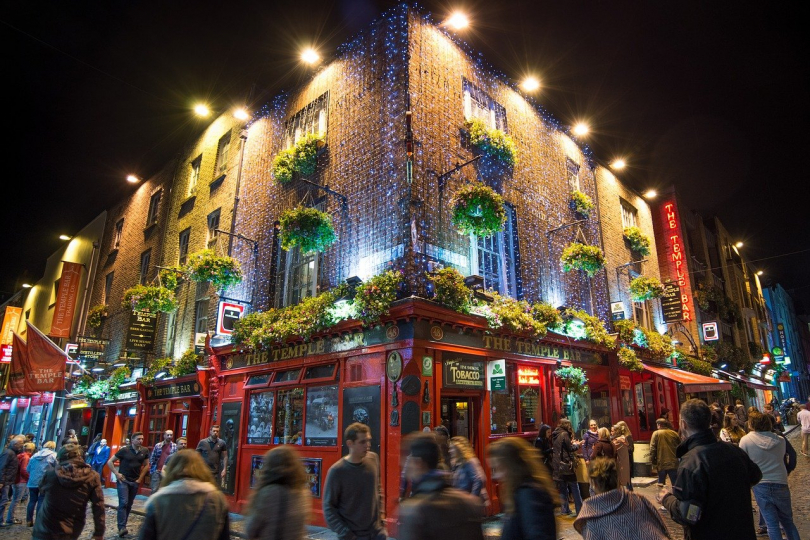
All Eyes on Ireland: Dublin Club Scene Trekker with DJ Dean Sherry
Ireland, the green gem on the westernmost edge of Europe, abounding in myths and leprechauns, traditional music, pubs, Guinness, and whiskey drinking. In today’s part of our series "All Eyes on...", we are going to cover the main events taking place in Ireland, and we will also immerse ourselves in the sound of the Irish underground with the thoughts of Dublin’s DJ Dean Sherry. Haven’t been to Ireland yet? At the very end of this article, you will find some useful tips for venues and festivals plus a brief tour through the Irish music scene.
In no other country has (traditional) music played such a major role as in Ireland. Whomever in the world you ask about the Irish or Ireland, the answer would be—music and drinking (in no particular order). Music is simply part of the Irish DNA. As Dean Sherry says: “There’s more Irish abroad than in the country! And we bring our rich musical heritage with us everywhere!”
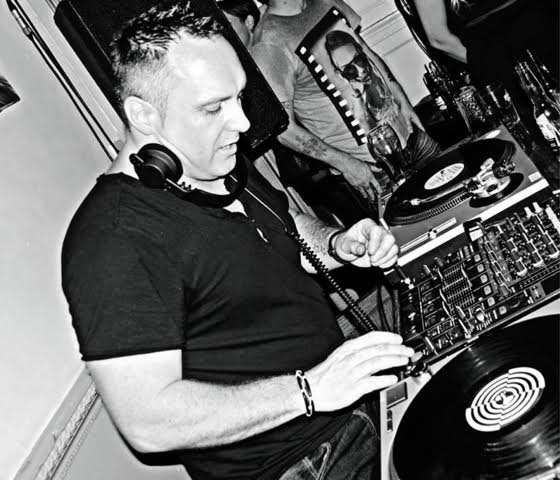
Dean, you are a music producer and DJ holding key residencies in almost all major Dublin clubs since the mid-90s (Shaft, POD, System, Olympic, MONO, Kitchen, Switch, Thompson’s Belfast, Wright Venue). You have also founded the PHEVER.ie TV-Radio, presenting underground electronic & non-mainstream music. What were your motives?
To be honest, I think there’s a lack of non-biased media, that's why I set up this PHEVER TV-Radio platform to be a voice for the underground and an outlet for DJs to perform to a global audience. Our platform has multiple facets and we continually expand into more areas, over our socials and website, plus a mobile app. And also, talking about covid, for anything live it’s been a disaster, however for us it’s seen immense growth in part due to lockdowns.
Your motto is the Sound of the Irish Underground. Is it like an anti-establishment or rebellious statement or just fun to be independent or non-commercial, what do you mean by that?
Exactly. Non-commercial. We're not going to play the stuff that gets into the charts. Generally, it's the music that's made for nightclubs, it's generally made for those electronic clubs and bars around the world. It's not generally made for the top 40. They're longer cuts of music, 6 or 7 minutes, a lot deeper, a lot harder, and a lot less formulaic than you would hear on chart music, and obviously they wouldn't generally have as many vocals. But by underground, I just mean the scene in those back street clubs. And although house and the whole electronic movement has become more mainstream since it started in the '90s, the Phever stands for the sound of the Irish Underground. You won't hear on it anything that you would hear on a mainstream radio station, and we pride ourselves on that because it has to be a differentiation. PHEVER is now led by myself and partners Paul Cronin and Dave Caffrey with a live team of over 100 talented artists, DJs & producers all using the platform to broadcast and advertise their music.
Is Dublin still the city of clubs and nightlife? Which ones would you recommend?
As you know, my own background is nightclubs. So obviously that's my bias for them. But the sad fact is that Ireland doesn't have that many nightclubs anymore. And even in Dublin City, which is where I'm from, I was there in the '90s when it was the peak of the whole dance music revolution, and I was a 20-year-old guy coming into and getting my first gigs. It was a wonderful time. There were nightclubs everywhere and more nightclubs evolved over that decade. But since then, four of the five nationwide have closed. It's sad because all of our cultural spaces are being eroded away and they're being turned into hostels and hotels, and there's nothing for all these tourists to do when they get here. So, there's a movement going on to try and correct its cause, "Give us the night". With PHEVER we help them promote their cause, they're very focused on changing regulations and the law. As for the clubs, I would recommend Index, Button Factory and Opium, as they are really the only proper customer clubs remaining in the city.
Funnily enough, I was actually going to ask you about the campaign "Give us the night". So, the main problem is opening hours?
Yes, our opening/closing hours were established well over a hundred years ago. The clubs and late bars would all close at 2:30 in the morning. So, there are no staggered times or later specialist options, and that's a problem. It's all or nothing. And that leads to everyone on the streets at the same time. It's not easy to trade when you're competing with everybody. I think if you were able to have a later license or a slightly different license, you could have some kind of a way of firstly competing and secondly, having something else to offer rather than everything being the same. There are progressive options being discussed and put on the table, and hopefully, the government will adopt better forward-looking and new thinking regarding nighttime hours and regulations.
How about the classic places like Academy, Vicar St. or the bars in the Temple Bar district? These are still open, right?
Yes, they are. The Academy, it's more of a student venue, so that is a big space and it tends to cater for that kind of younger student audience. There are many smaller live music bars in the Temple Bar, such as Gogarty’s, for example.
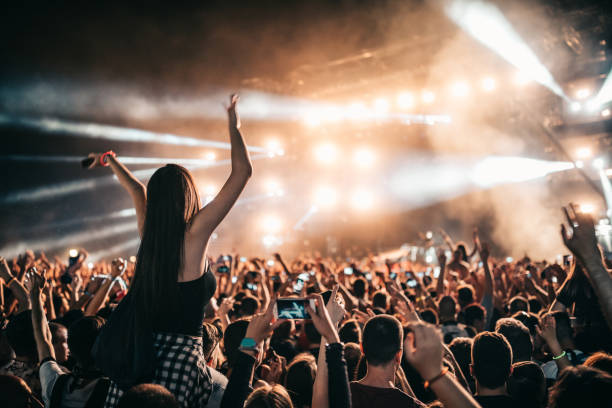
How about festivals in Ireland?
I must speak up for our own SOLAS Boutique Festival, we are planning 2 events this year hopefully, but the festival scene here, at least pre-covid, was immense; Life, Electric Picnic, Body & Soul, Belsonic, All Together Now to name but a few...
You mentioned Electric Picnic. I have heard that it’s been called Ireland's version of the Glastonbury. Do they exaggerate or is that really the case?
It's probably the biggest festival in Ireland. It's a three-to-four-day annual festival, I guess it would be our version of Glastonbury. It's a very well-managed, multiple-faceted event, live music, electronic music, live performances, comedy, and art. It covers the whole spectrum of performance from dance, you know, not just musical, any type of performance art. And it's a great experience. It's one that they all look up to. It has been bought by Live Nation. It's up there with one of the world's biggest festivals at the moment. I was lucky enough to play live at it about 10 years ago, we played a set at the festival. It was amazing.
So you play yourself, too?
I’m primarily a club DJ. I have been for the last 30 years, I guess, but I'm part of the PHUNK'DUP Soundsystem, which is a kind of a live hybrid electronic group. Myself and Barry Dempsey. We're playing instruments and sequencing things live on stage so that's what we did with the Electric Picnic in 2011. I’m hoping to play live in near future again on new solo projects.
Sounds interesting. Let’s change the topic a bit. Generally, when people think about Irish music, it’s acts such as U2, Enya, and Cranberries and, of course, traditional Irish music. Were you forced to play the whistle at school or, actually, what's your attitude to traditional Irish music?
(Laughs) Yes, it was part of our culture in school. We all had to do music classes and you learn a little bit of tin whistle and you learn the recorder. I was more into percussion, so I was usually hitting things and making noise with tambourines and stuff for them. We have an Irish drum called the bodhran, so I used to play that in school. Not very well. But my parents, my father, would have been a huge Irish music fan. He played whistle very well and a little bit of guitar and banjo. So there was always music in my house and he would listen to Irish traditional and Irish rebel kind of songs. I'm familiar with it and obviously, my own tastes changed, during the 80s and 90s. I was an electronic fan, so that's how I drifted to that music. I mean, Ireland has made its own name in obviously those names that you've mentioned, those established ones. But we have had and we do have a lot of electronic artists and there’s starting to be a lot more of them.
Who is "hot" on the Irish music scene right now?
Talking about my own genre, Irish electronic artists who are making real moves include Matador. I really like what Will Kinsella aka Hybrasil is doing, Sunil Sharpe, Mano Le Tough, Loco & Jam, Fish Go Deep, Chymera, John O’Callaghan, Rebuke, Ejeca, Defekt, Nancy, Glen Brady who's about to unleash Def Nettle, and Glenn Davis...
I was looking at Will Kinsella aka Hybrasil, recommended by you, and I found out that he's actually based in Berlin. What does Hybrasil mean actually?
He’s from Dublin originally. We've done some work together, he’s a great creative resource. He's moved to Berlin basically to develop himself as an artist, as a studio. So he's working with some of the very biggest labels and artists at the moment, and he’s playing in some of the biggest clubs in Berlin at the moment. And the name, he’s “emerging from the underground”, which is an allegory to a phantom island Hybrasil, the Irish Atlantis they call it, which can be seen west of Ireland every 7 years. It appears in many Irish myths.
About DJing, do you mainly play vinyl or do you use digital, too? Is it that physical aspect of it that makes all the difference or how does it work for you?
(Laughs) I started out on vinyl and I still play it, but I just don't like carrying it around. And so I play digital as well. I normally do a mixture, and if I know that it's going to be vinyl decks at an event, I'll bring some vinyl, but I mix things up. You know, as a DJ, I prefer playing vinyl. It's a much more intense experience to have to concentrate on spinning two discs. But at the end of the day, the audience doesn't really know any difference.
A medical question, if I may? Are you used to wearing earplugs when you are playing? Tinnitus has been quite an issue talked about recently.
I'm going to show you something if I can find it. I never used to wear ear protection while DJing. I do wear my headphones almost constantly on my ears because they do offer some protection from the outside noise, and I don't tend to blare my own music within the headphones. However, it's generally the other sound as you're walking around and waiting around that affects your hearing. And I did get tested about five years ago and one of my ears, my left ear, (funny enough, because that would be the ear that I monitor myself with), was down about 30 per cent as to where it should be on the frequencies. So now I have bought myself some sound isolation earplugs. I never suffered from tinnitus, thankfully, except one time, very, very long ago after a really loud tour. But I do take the protection and these are produced by a UK company called Flare, and they're not that expensive, it's probably 50 euro well spent.
I have read about the charity event DANCE 4 HOMELESSNESS… Are you involved in charity projects a lot?
Yes, we use PHEVER to do a lot of charity events, and we tend to basically host a couple of different things over the year. That particular event has been waiting two years to happen because we founded it just before COVID happened. And because the homelessness situation in Ireland, in Dublin especially, had escalated massively. So we wanted to do something to help the charity. We're hoping to run it on the 25th of March. We also do a lot of work for mental health charities and other events.
What would be your advice for foreign artists/bands wanting to tour in your country?
They would need to apply to the leading large live promoters such as MCD or Aiken I would advise...
To close it. Tell me the first idea that comes up when you hear the names of the most stand-out Irish acts of all time...
... The Pogues.
"Fairytale of New York", a classic.
... The Corrs.
I always fancied the drummer :)
... Bob Geldof, with the Boomtown Rats.
Never liked them.
... It's getting even more problematic. Sinead O'Connor.
I like her. I think she's a very, very unique talent. I recently read her book (Rememberings), very sad.
... Horslips?
I was too young, but I've heard of them, and they have a track called "Dearg Doom", which is great—but that's all I know.
The Dubliners?
That was my father's favourite band. Proper Dublin drinking music. (laughs)
Enya?
Uhm, very, very rich. (sincere laugh)
Cranberries?
Dolores was a legend. Yeah, so that's all I can say there.
How about U2.
Ireland’s biggest export, I guess. I was a huge fan in the late '80s, early '90s, and then I think they went crap.
Glen Hansard, the Frames?
And the movie Once, yeah. I don't know him, but he's from where I grew up. He’s a legend and a very good busker.
Are you familiar with Lúnasa?
I have heard of them, but I don't know their music. Some traditional Irish weirdness. (laughs)
And the very last one, Lisa Hannigan?
I know of Lisa Hannigan, she's very big on the Irish live circuit.
Traditional and much more...
And for those of you who want to take a quick look at the Irish music icons and venues, there is a short overview here.
The Chieftains, the Irish Rovers, The Dubliners, The High Kinds, Planxty, to name a few. All these bands presented to the world the best of Irish traditional music in the second half of the 20th century, to be followed by Clannad, Altan, Gráda, Lúnasa, Beoga, and Sharon Shannon among others.
An overnight sensation—the Irish music global export No. 1
In 1994, Irish composer and musician Bill Whelan composed a piece for the interval of the Eurovision Song Contest. The result, Riverdance, was a seven-minute display of traditional Irish dancing, starring Michael Flatley and Jean Butler, and featuring the Anúna choir. It spawned a worldwide craze for Irish dancing and traditional music.
Getting "fused"
No wonder the Celtic rock genre originated in Ireland. There is no need to mention such well-known Celtic rockers as Horslips with their electric rock and Irish themes, Sinéad O'Connor, famous for using traditional elements in her popular songs, or Enya who achieved international success with her Celtic fusions. One of the big names recently is Kíla, singing in Irish Gaelic. As Bono put it: "Whatever it is... this is it. Kíla are right there at the cusp of it…” (quote from Kíla’s official website).
Pop/rock anyone?
There is no need to introduce Westlife, Boyzone, The Corrs, Thin Lizzy, U2, The Cranberries, or the harder-sounding The Boomtown Rats. But have you heard the recently up-and-coming Murder Capital, a post-punk band based in Dublin?
More festivals...
The Fleadh Cheoil is an Irish music festival featuring Irish traditional music. The Fleadh developed as a mainly competitive event, but it also includes many concerts, parades, and sessions. Its host town changes every two to three years since individual counties across the island take turns in hosting it. The largest Fleadh to date was the 2018 Drogheda one, an event that attracted 500,000 people.
TradFest Temple Bar is an annual festival of traditional Irish and folk music that takes place in Dublin’s cultural quarter of Temple Bar.
Harvest Time Blues (also referred to as the Monaghan Rhythm and Blues Festival) is an annual music festival held in Monaghan town as one of Ireland's leading live music festivals.
More music venues…
The Róisín Dubh is a live music and comedy venue located in Galway. It has hosted events such as the IMRO Showcase Tour.
Dolans is a Traditional Irish Pub located on the Dock Road in Limerick with three Live Music Venues.
The Cobblestone: “a drinking pub with a music problem”, a Dublin place for traditional Irish music sessions.
The Brazen Head is Ireland’s oldest pub and live music venue.
The Black Door Piano Bar features live music & Dublin's best DJs.
The Workman’s Club is home to some of the capital’s finest club, comedy, acoustic and new band showcase nights.
Whelan’s has two live music venues.
National Showcase Programme
Irish showcase events include the Ireland Music Week, as well as RTÉ Choice Music Prize, a contest held by Ireland’s national TV and radio broadcaster RTÉ. Each year, a panel of music media professionals from the Irish print, radio, TV, and social media select a shortlist, consisting of 10 albums released by Irish acts for the very first time in a given calendar year. Instead of using sales or airplay as criteria, the judges' focus is on the actual music. To name a few, in 2020 the winner was Irish rapper of Zambian origin Denise Chaila, while the folk group Lankum won in 2019.
Have you been or even played in any Irish club? How did you enjoy it? Who are your favourite artists from Ireland? Tell us in the comments below!
If you have found an error or typo in the article, please let us know by e-mail info@insounder.org.


